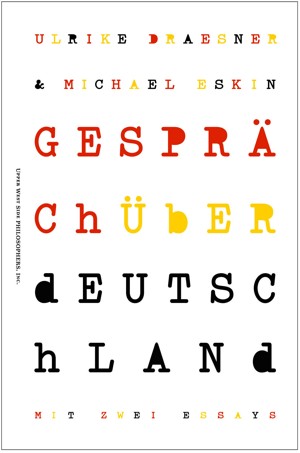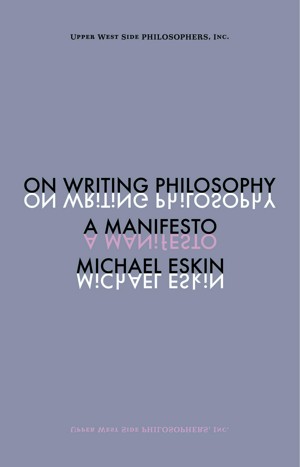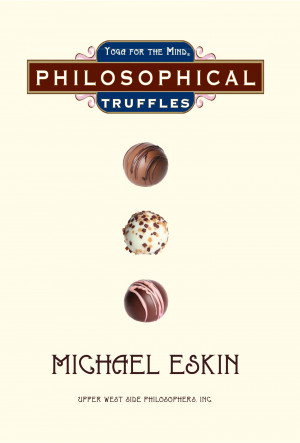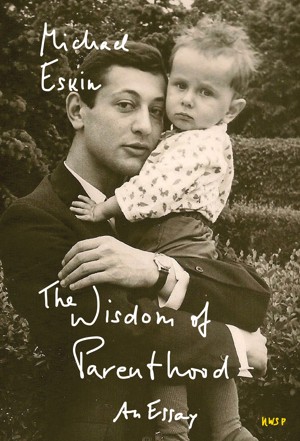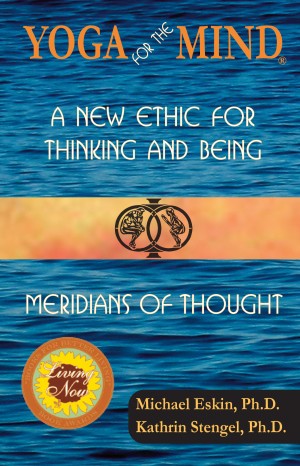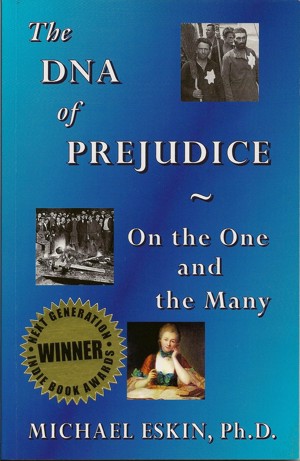Share with Friends
Interview with Michael Eskin
Published 2013-11-19.
Smashwords Interviews are created by the profiled author or publisher.
Books by This Author
Gespräch über Deutschland. Mit zwei Essays von Ulrike Draesner & Michael Eskin
by Ulrike Draesner & Michael Eskin
Price:
$9.99 USD.
Words: 55,750.
Language:
German.
Published: January 19, 2024
by
Upper West Side Philosophers, Inc..
Categories:
Nonfiction » History » European » Europe / Germany
Was heißt es heute, Deutsche:r zu sein – oder in Deutschland zu leben? Dieses Gespräch eröffnet einen persönlichen Denkraum, regt dazu an, unsere Bilder von uns und ›den anderen‹ zu befragen, und verschiebt unsere Wahrnehmung. Analytisch und poetisch, traurig und humorvoll erzählt es von Identität und Wandel, von Migration und Sprachvielfalt, von Biodeutschen und Deutschen mit Nazihintergrund.
On Writing Philosophy: A Manifesto
by Michael Eskin
Price:
$9.99 USD.
Words: 50,780.
Language:
English.
Published: September 28, 2022
by
Upper West Side Philosophers, Inc..
Categories:
Nonfiction » Philosophy » Contemporary philosophy
Polemical and aiming at both the academic and general reader, this punchy book – a manifesto, manual of instruction, and romp through the history of philosophy – argues that what we typically take to be ‘philosophy’ these days is actually not philosophy in the strong or ‘true’ sense, but a mix of intellectual history, the history of philosophy, philosophical scholarship, and ‘academic’ philosophy.
Philosophical Truffles
by Michael Eskin
Price:
$9.99 USD.
Words: 6,080.
Language:
English.
Published: November 26, 2018
by
Upper West Side Philosophers, Inc..
Categories:
Nonfiction » Inspiration » Personal inspiration, Nonfiction » Philosophy » Ethics & moral philosophy
These aphorisms and philosophical miniatures will astound, enliven, and inspire anyone ready and willing to risk a fresh, unflinching look at the world, humanity, and the often curious ways in which we think, act, and feel … Like truffles that gradually dissolve on our tongue, suffusing us with the gustatory memory of their transient shape and texture, and leaving us desiring more …
The Wisdom of Parenthood: An Essay
by Michael Eskin
Series: Subway Line, no. 7.
Price:
$9.99 USD.
Words: 7,110.
Language:
English.
Published: October 31, 2013
by
Upper West Side Philosophers, Inc..
Categories:
Nonfiction » Parenting » Adoption, Essay » Sociology
THE WISDOM OF PARENTHOOD is a provocative meditation on the meaning, experience and practice of parenthood both as a universally human phenomenon across history and, more specifically, in the age of assisted reproduction, in vitro fertilization, gestational surrogacy, “third-party production,” international adoption and the transformation of the nuclear family with the rise of LGBT parenting.
Yoga for the Mind: A New Ethic for Thinking and Being & Meridians of Thought (2014 Living Now Book Award Winner)
by Michael Eskin
Series: Subway Line, no. 6.
Price:
$9.99 USD.
Words: 24,900.
Language:
English.
Published: May 2, 2013
by
Upper West Side Philosophers, Inc..
Categories:
Nonfiction » Self-improvement » Motivation & inspiration
"Yoga for the Mind is Slow Thought for a Fast Life."
We are constituted to think and reflect, to query and question, to seek answers and not stop at the answers we find. In short, we are philosophical creatures. So, how can we achieve more fulfilling lives as philosophical beings? This question is at the core of Yoga for the Mind, a rich philosophical supplement to the daily diet of existence.
The DNA of Prejudice: On the One and the Many
by Michael Eskin
Series: Subway Line, no. 2.
Price:
$9.99 USD.
Words: 18,610.
Language:
English.
Published: July 13, 2012
by
Upper West Side Philosophers, Inc..
Categories:
Nonfiction » Philosophy » Social, Essay » Sociology
Winner of the 2010 Next Generation Indie Book Award for Social Change.
This book takes the reader through the many layers of meaning that accompany the word ‘prejudice’. By critically confronting the ways in which we think and speak about prejudice, Michael Eskin clears the path for a new understanding of prejudice as a concept, a phenomenon, and a lived experience.

